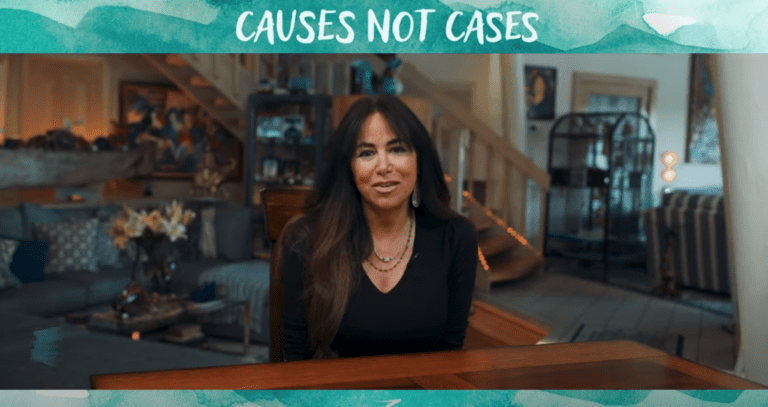Truck drivers have a special responsibility to stay safe on California roads. They drive huge, heavy, unwieldy vehicles with enormous blind spots. It takes special knowledge and skill to operate these behemoths without putting the lives of others on the road at risk.
But all of that knowledge and skill can come to nothing if a trucker climbs behind the wheel without proper rest. Truck driver fatigue is, quite literally, a killer on the nation’s roads. A landmark study of the causes of truck accidents conducted by the Federal Motor Carrier Safety Administration (FMCSA) in 2007 found trucker fatigue to be a significant factor in truck accidents.
It is also a serious problem in California. According to the California Office of Traffic Safety (COTS), ten to twenty percent of large truck and bus crashes involve a tired driver.
In this blog, we take a deep dive into the troubling epidemic of fatigued truckers on California roads. We explore the dangers of trucker fatigue, why fatigue happens, what you can do to protect yourself against fatigued truckers, and your rights if, despite your best efforts, a fatigued trucker causes an accident that does you harm.
[lwptoc]
Fatigue Is as Dangerous as Drinking
Let’s start with the basics. Many people do not realize it, but driving fatigued (or “tired,” “drowsy,” etc.) is just as dangerous as driving drunk. Fatigue will:
- Slow down your thought process and reaction time;
- Affect your judgment and vision;
- Impair your sense and abilities; and
- Cause micro-sleeping (nodding off) or falling completely asleep.
If fatigued driving is that dangerous for any driver, just think of how dangerous it is when that driver climbs behind the wheel of a (minimum) five ton truck. That trucker can end up in the same types of accidents as any other driver, but because he’s driving a large, heavy truck, any collision will tend to cause more damage and worse injuries than a comparable collision involving passenger vehicles. It is not an exaggeration to say that a truck driven by a fatigued driver might as well be an unguided missile. It is that dangerous to others on the road.
Why Fatigued Truck Driving Happens
Truckers are human. Like anyone, they get tired when they don’t get enough sleep or rest. But unlike many other Californians, truckers have a job that can be absolutely brutal on their wake/sleep cycle (known as their circadian rhythm). Most of us are awake during the day and sleep at night. Some of us follow the opposite schedule as night-shift workers, sleeping during the day and heading to jobs when the sun sets.
But trucks don’t necessarily have a schedule by which their body clock is set. They work when cargo is ready to move. Sometimes they drive during the day. Sometimes at night. Sometimes half and half. This lack of schedule can seriously impair a trucker’s wakefulness and his ability to get quality, restful sleep. As a result, even while driving in the middle of the day, a trucker’s body clock might make him feel as if he should be sound asleep.
Other factors that are particular to trucking compound driver fatigue. Operating a big rig on long, straight, flat roads like so many here in California is monotonous. It can have a hypnotizing effect that lulls a trucker into a sleepy state familiar to anyone who has performed the same task over and over for long periods.
Trucking is also a sedentary activity, and sitting for long stretches is not healthy. A 2014 survey of trucker health characteristics conducted by the Centers for Disease Control and Prevention (CDC) in collaboration with the FMCSA found that as a population, truckers:
- Were twice as likely as the general population to be obese (69 percent vs. 31 percent), and that nearly one in five (17 percent) were morbidly obese;
- Smoked cigarettes at rates two and a half times that of the general population (51 percent vs. 19 percent);
- Had elevated rates of diabetes;
- Exceeded the national average in measures of sleepiness and sleep disturbances;
- Are an aging workforce: three-quarters of the trucking workforce is over age 40, and almost half is over age 50;
- Have limited access to healthy food options;
- Do not get enough exercise; and
- Have limited access to healthcare facilities (and over one third lacked healthcare coverage).
By any measure, those are some grim findings. They also have some predictable results.
How Often Fatigued Truck Driving Happens
The CDC survey of the nation’s truck drivers unveiled some extremely troubling facts about how often truck drivers take the wheel while fatigued. The survey responses revealed that:
- 34 percent of truck drivers admitted having nodded off or fallen asleep while driving;
- 7 percent of truck drivers admitted feeling very drowsy every day while driving;
- 24 percent of truckers admitted having one “near miss” incident on the road in the past seven days; and
- 12 percent of truckers admitted having two or more “near misses” in the past seven days.
It is virtually certain that these survey results represent a low-end estimate. Humans tend to overestimate their abilities and under-estimate the frequency of their own unsafe behaviors.
But even if the estimates are dead-on accurate, they’re pretty terrifying. For every three large trucks you see on the road, on average the driver of one of them will have nodded off or fallen asleep behind the wheel at some point in the past. One of every 15 truckers (give or take) with whom you share the road is feeling very drowsy right now.
Just think: On your last one-hour highway trip, how many large trucks did you encounter? We bet you saw a lot more than fifteen. That means it is virtually certain you shared the road with a fatigued truck driver; a driver who was as impaired as if he were driving drunk.
Anti-Fatigue Truck Driving Regulations
The federal government has implemented so-called “hours of service” regulations to combat truck driver fatigue. These regulations apply to all truckers who drive in “interstate commerce” (meaning their hauls cross state lines). California has also implemented hours of service regulations for “intrastate” trucking (meaning trucks that only operate within the boundaries of the state). Both the federal and state requirements are set forth in the California Commercial Driver Handbook.
Federal interstate hours of service requirements are slightly more strict than the California “intrastate” requirements. Truckers driving in interstate commerce may not drive after:
- Driving 11 hours after 10 consecutive hours off-duty;
- Being on-duty 14 hours after 10 consecutive hours off-duty; and
- Being on-duty 60 hours in seven consecutive days or 70 hours in eight consecutive days.
Truckers in interstate commerce must also take a 30 minute rest break after 8 consecutive hours of driving.
When driving intrastate (that is, within California), truckers may not drive:
- More than 12 hours after 10 consecutive hours off-duty; or
- After the end of the 16th hour after coming on duty, following ten consecutive hours off-duty.
In theory, these rules are supposed to keep fatigued truckers off of the roads. In practice, however, they only make a dent in the problem. As the CDC survey shows, fatigued drivers still take to the road all the time. The rules simply cannot account for the numerous factors that affect driver fatigue, such as poor health and nutrition, tight timetables, and irregular work schedules. Those problems cannot be addressed simply by limiting the number of hours truckers can work.
Staying Safe When Sharing the Road With Fatigued Truckers
In light of the statistics above, every Californian who drives should treat large trucks with extra caution. Remember that even an awake and alert trucker operates a heavy, unwieldy vehicle with massive blind spots, a long stopping distance, and a tendency to roll over or jackknife when it attempts to make sudden maneuvers. Every driver should observe basic driving safety around trucks at all times.
Now, add to those risks the fact that a significant number of trucks have tired drivers behind the wheel. How should you, as the driver of an ordinary passenger vehicle, keep yourself and others safe? Here are some tips.
- Report erratic/weaving trucks. Follow the old adage, “If you see something, say something.” A vehicle operated by a fatigued trucker will resemble one driven drunk. If you spot a truck weaving, making sudden, erratic course corrections, or drifting out of a lane, first give it plenty of space, and then call 911. Better for that trucker to receive a citation than to die or suffer serious injuries in a catastrophic accident that hurts others, too.
- Be alert in danger spots and at danger times. Long, flat, straight stretches of highway and secondary road are places where tired truckers run a higher-than-average risk of nodding off. Late night and early morning are the highest risk time of day for a trucker to feel overwhelmed by fatigue. As a driver, be on high alert in these situations.
- Be kind to truckers. The highway gets you from point A to point B. But for truckers, it is a workplace. Give them the courtesy you would expect of anyone visiting you in your office or on the sales floor. Don’t cut trucks off. Give them plenty of space to maneuver. Avoid riding in their blind spots. And respect that they cannot stop nearly as quickly as you can.
- Practice what you preach. You cannot expect others to take fatigued driving seriously if you do not take it seriously yourself. Always practice safe driving habits. Before a long road trip, get a full night’s sleep. Take frequent breaks. If you feel sleepy all of a sudden, don’t try to “power through” or rely on caffeine to keep you awake. Instead, pull over and take a quick cat nap. Even twenty minutes of snoozing can restore alertness.
Seeking Legal Help After a Fatigued Trucker Accident
Despite your best efforts, it’s not always possible to avoid ending up in an accident with a truck driven by a fatigued trucker. If you find yourself the unfortunate victim of a trucking accident, look after yourself first. Seek immediate medical care, even if you don’t “feel” injured. Truck accident injuries come with a wide array of symptoms, some of which can take hours or even days to emerge. Seeing a doctor not only protects your health and wellbeing, it also creates important records of your health condition immediately after an accident, which may prove useful later on.
After stabilizing your health condition after a truck accident, consult an experienced California truck accident attorney. Depending upon the circumstances of the accident and your injuries, you may have the right to take legal action seeking significant compensation.
Who might have legal liability to you in an accident caused by a fatigued trucker? The trucker, for starters, who should not have climbed behind the wheel while fatigued. But not just him. Those who direct or control the trucker’s activities, such as an employer or a shipper, may bear some of the blame for creating the conditions in which the driver felt fatigued, or for failing to ensure the driver observed hours of service protocols.
And as in any trucking accident, other parties may also share some of the blame. Truck manufacturers and mechanics are responsible for putting working equipment on the roads. Drivers of passenger vehicles have an obligation not to drive in ways that force truckers to make dangerous maneuvers. Even municipal governments have a duty to design, build, and maintain roads safe for truck transit.
Working with the attorneys at the Gomez Trial Attorneys is the best way to determine who might have a legal liability to you for the damages you suffered in a truck accident. Speak with a lawyer before engaging in any conversation with an insurance company, particularly if someone comes to you offering you a “quick settlement.” A truck accident lawyer has the knowledge and skill set necessary to hold the right parties accountable for any injuries you suffered because of a trucker who drove fatigued.







